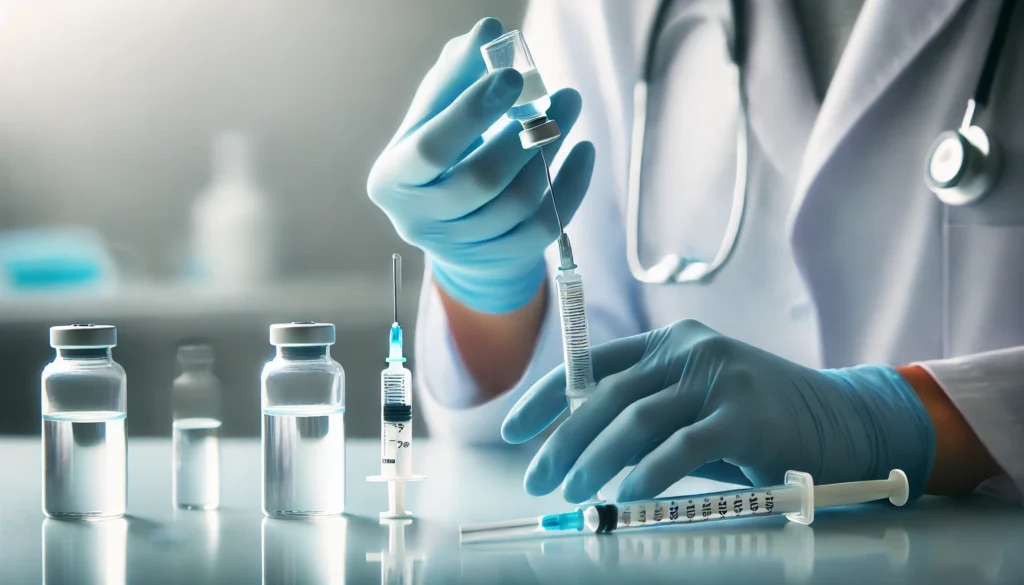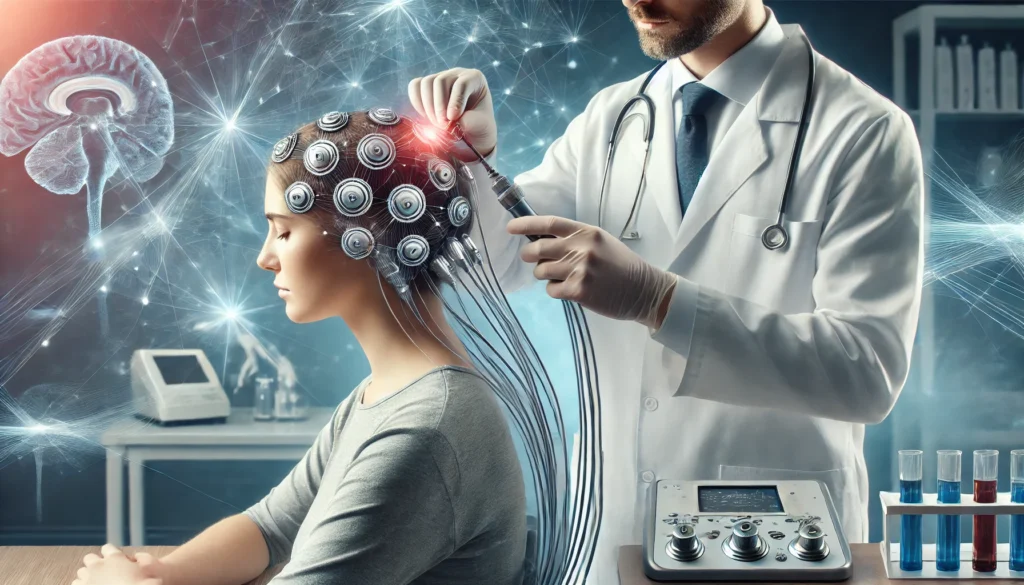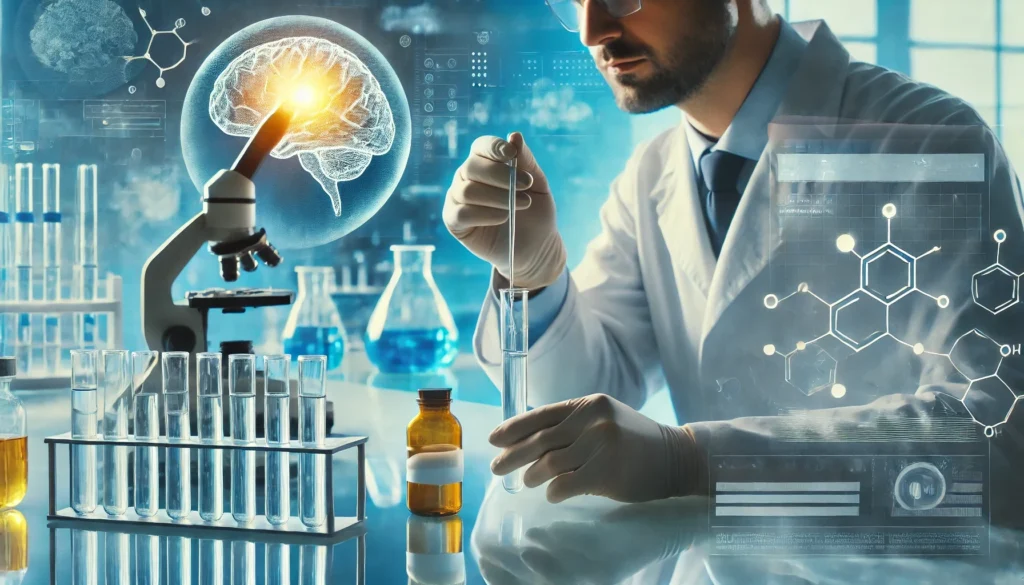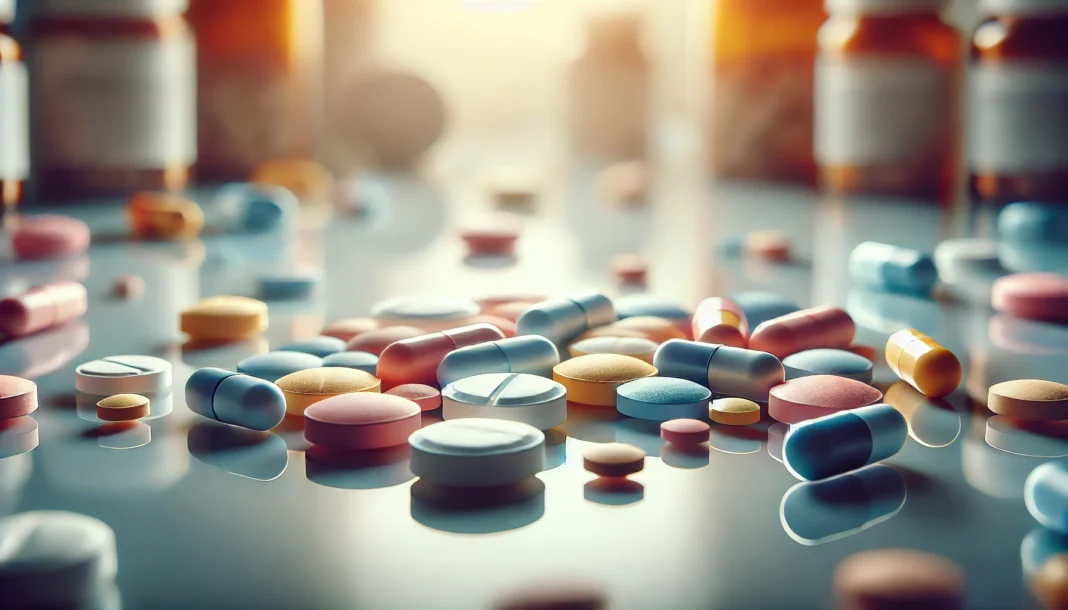Introduction
Depression remains one of the most pressing mental health challenges worldwide, affecting millions of individuals and profoundly impacting their quality of life. Over the years, significant strides have been made in understanding the neurobiological mechanisms underlying depression, leading to the development of innovative pharmacological treatments. The emergence of new depression medication has transformed treatment options, offering hope to individuals who have not responded well to traditional antidepressants. As researchers continue to explore novel mechanisms and refine therapeutic approaches, new drugs for depression are poised to revolutionize mental health care. This article delves into the latest advancements in depression treatment, examining how new depression meds are reshaping the landscape of pharmacological therapy and highlighting promising breakthroughs in drug development.
You May Also Like: List of New Medications: Breakthrough Treatments and Innovations in Modern Medicine
Understanding Depression and Its Challenges
Depression is a complex, multifaceted disorder characterized by persistent feelings of sadness, hopelessness, and a loss of interest in daily activities. It affects cognitive functions, sleep patterns, and energy levels, often leading to significant impairments in social and occupational functioning. Despite the availability of various treatment modalities, many individuals continue to struggle with treatment-resistant depression (TRD), a condition where standard antidepressant therapies fail to provide sufficient relief. Traditional antidepressants, including selective serotonin reuptake inhibitors (SSRIs) and serotonin-norepinephrine reuptake inhibitors (SNRIs), have been widely used, yet they often require weeks to take effect and may not be effective for all patients. This has fueled the demand for new depression treatment strategies that work faster and target different pathways in the brain.
Novel Mechanisms in Depression Treatment
The latest new depression medication options are shifting the focus from conventional monoamine-based treatments to novel mechanisms that target glutamate, GABA, and neuroplasticity. The role of the glutamatergic system has been particularly groundbreaking, leading to the development of drugs like ketamine and esketamine. These medications work by modulating NMDA (N-methyl-D-aspartate) receptors, promoting synaptic plasticity and rapidly alleviating depressive symptoms. Additionally, emerging therapies aim to enhance neurogenesis, improve mitochondrial function, and regulate the gut-brain axis, further expanding the scope of pharmacological interventions for depression.
Esketamine: A Game-Changer in Rapid-Acting Antidepressants
Esketamine, a derivative of the anesthetic ketamine, represents a major breakthrough in new depression meds. Administered as a nasal spray, esketamine has demonstrated rapid antidepressant effects, with some patients experiencing relief within hours of administration. Unlike traditional antidepressants, which primarily target serotonin and norepinephrine, esketamine acts on the glutamate system, fostering synaptic connections and enhancing neuroplasticity. This makes it particularly effective for individuals with treatment-resistant depression. The approval of esketamine by the FDA marks a significant advancement in depression treatment, offering a fast-acting alternative for patients who have not responded to conventional therapies.

Psychedelic-Assisted Therapies: The Role of Psilocybin and MDMA
Psychedelics have re-emerged as a promising avenue for new depression treatment. Psilocybin, the active compound in magic mushrooms, has gained attention for its ability to induce profound changes in perception and emotional processing. Clinical trials have shown that psilocybin-assisted therapy can lead to sustained reductions in depressive symptoms, particularly in individuals with major depressive disorder (MDD). Similarly, MDMA (3,4-methylenedioxymethamphetamine), known for its empathogenic properties, is being investigated for its potential to enhance therapeutic outcomes in depression and post-traumatic stress disorder (PTSD). These compounds appear to facilitate emotional breakthroughs and promote neuroplasticity, paving the way for novel therapeutic approaches.
NMDA Receptor Antagonists: Expanding the Ketamine Paradigm
Beyond ketamine and esketamine, other NMDA receptor antagonists are being explored for their antidepressant potential. Dextromethorphan-bupropion, a combination drug recently approved for major depressive disorder, leverages NMDA receptor modulation alongside norepinephrine-dopamine reuptake inhibition to provide a unique mechanism of action. This represents a shift away from traditional monoamine-based antidepressants and highlights the growing emphasis on targeting alternative neurotransmitter systems. Research into NMDA receptor modulation continues to evolve, with additional compounds in development that aim to optimize efficacy and minimize side effects.
The Role of GABA Modulators in Depression Treatment
Gamma-aminobutyric acid (GABA), the brain’s primary inhibitory neurotransmitter, plays a crucial role in mood regulation. Dysregulation of the GABAergic system has been implicated in depression, leading to the exploration of GABA-modulating agents as a new therapy for depression. Brexanolone, a neurosteroid-based treatment, has been approved for postpartum depression, offering rapid symptom relief. Other GABA-targeting drugs, including neuroactive steroids and positive allosteric modulators, are under investigation for their potential to provide fast-acting and sustained antidepressant effects. These advancements underscore the expanding scope of pharmacological targets beyond traditional serotonin-focused treatments.
Personalized Medicine and Biomarker-Guided Therapies
One of the most exciting frontiers in depression treatment is the shift toward personalized medicine. Advances in genomics and neuroimaging have facilitated the identification of biomarkers that predict treatment response, allowing for more tailored therapeutic approaches. Pharmacogenetic testing enables clinicians to determine how an individual’s genetic makeup influences their response to antidepressants, reducing the trial-and-error process associated with medication selection. Additionally, neuroinflammation markers and gut microbiome analysis are being explored to refine treatment strategies and enhance therapeutic precision.
Future Directions in Depression Treatment
The landscape of depression treatment is evolving rapidly, with numerous experimental drugs in the pipeline. Novel agents targeting neuroinflammation, mitochondrial function, and the endocannabinoid system hold promise for addressing unmet needs in depression care. Researchers are also investigating the potential of digital therapeutics, combining pharmacological interventions with artificial intelligence-driven mental health support tools. As scientific advancements continue to reshape our understanding of depression, the future of treatment is likely to be characterized by greater precision, faster-acting therapies, and enhanced patient outcomes.

Frequently Asked Questions (FAQ) on New Depression Medications
1. What makes new depression medication different from traditional antidepressants?
New depression medication differs from traditional antidepressants primarily in how they interact with the brain’s neurotransmitter systems. While older medications, such as selective serotonin reuptake inhibitors (SSRIs) and serotonin-norepinephrine reuptake inhibitors (SNRIs), primarily target serotonin and norepinephrine levels, many new drugs for depression work on alternative pathways, such as the glutamate system or GABA receptors. For example, esketamine, a recently developed drug, modulates NMDA receptors to enhance synaptic plasticity, leading to faster symptom relief. Additionally, new depression meds often offer more rapid onset of action, with some patients experiencing improvement within hours or days rather than weeks. These advancements provide crucial options for individuals who have not responded well to conventional treatments, broadening the spectrum of effective pharmacological interventions.
2. How do new drugs for depression impact neuroplasticity?
A key aspect of new depression treatment strategies is their ability to influence neuroplasticity—the brain’s ability to form and reorganize synaptic connections. Traditional antidepressants can take weeks to promote neuroplastic changes, while some of the latest medications, such as ketamine-based treatments and psychedelics like psilocybin, facilitate rapid synaptic growth. These drugs stimulate the production of brain-derived neurotrophic factor (BDNF), a protein essential for neuron survival and function. This leads to enhanced communication between brain cells, which is often impaired in individuals with depression. The focus on neuroplasticity marks a significant departure from earlier approaches that primarily sought to adjust chemical imbalances without directly promoting brain adaptability.
3. What role do psychedelics play in new depression treatment?
Psychedelic compounds like psilocybin and MDMA have gained attention as potential new therapy for depression. Unlike conventional medications, which are taken daily, psychedelics are administered in controlled, therapeutic settings, often in conjunction with psychotherapy. Research indicates that these substances can lead to profound psychological breakthroughs, helping patients reframe negative thought patterns. They also promote neuroplasticity, which may explain their long-lasting antidepressant effects after just one or two sessions. While they are not yet widely available as standard treatment options, ongoing clinical trials suggest they may become integral components of future depression therapies, particularly for treatment-resistant cases.
4. Are there any new depression meds that target the gut-brain axis?
Emerging research highlights the significant role of the gut-brain axis in mental health, leading to the development of medications that influence gut microbiota. Some experimental new drugs for depression aim to regulate gut bacteria that produce neurotransmitters such as serotonin and dopamine. For example, probiotics and psychobiotics—specific bacterial strains that improve mental health—are being studied for their potential to enhance mood regulation. Additionally, researchers are exploring the impact of dietary interventions and prebiotics in modifying gut flora to support emotional well-being. While these treatments are still in the experimental phase, they represent a promising new therapy for depression that extends beyond traditional brain-focused interventions.
5. How does ketamine-based treatment compare to other new depression meds?
Ketamine and its derivative, esketamine, represent some of the most significant breakthroughs in depression treatment. Unlike SSRIs and SNRIs, which gradually increase neurotransmitter levels, ketamine acts on glutamate receptors to create immediate antidepressant effects. Many patients with severe depression report relief within hours of a ketamine infusion, making it a powerful tool for those at risk of suicide. However, its effects tend to be temporary, often requiring repeated doses for sustained benefits. Other new drugs for depression, such as NMDA receptor antagonists and neurosteroids, are being developed to build upon ketamine’s success while offering longer-lasting benefits with fewer side effects.
6. What are the most promising new drug classes for depression?
Several innovative drug classes are reshaping depression treatment, focusing on alternative mechanisms beyond serotonin and norepinephrine. NMDA receptor antagonists, such as esketamine and dextromethorphan-bupropion, work on the glutamate system to promote rapid relief. Neurosteroids, including brexanolone, regulate GABA receptors to balance brain activity, particularly in postpartum depression. Psychedelics like psilocybin are also showing promise for their ability to produce long-lasting antidepressant effects after minimal doses. Additionally, medications that modulate neuroinflammation and mitochondrial function are under development, offering new pathways for treatment-resistant depression. Each of these drug classes represents an exciting expansion in pharmacological options, potentially transforming mental health care.
7. Can new depression treatment options reduce the need for long-term medication use?
One of the major advantages of certain new depression treatment approaches is their potential to reduce long-term dependence on daily medications. Psychedelics, ketamine-based therapies, and personalized medicine strategies aim to create lasting changes in brain function rather than merely managing symptoms. Some experimental treatments focus on resetting neural circuits associated with depression, potentially allowing patients to maintain mood stability with minimal ongoing pharmaceutical intervention. Additionally, integrating these therapies with lifestyle changes, such as diet, exercise, and cognitive behavioral therapy, can further reduce reliance on chronic medication. While not all new depression meds eliminate the need for long-term use, they offer more flexible and individualized treatment plans.
8. What are the risks associated with new drugs for depression?
While new depression medication provides groundbreaking benefits, it is not without risks. Psychedelic-assisted therapies require careful monitoring, as they can produce intense psychological experiences that may be challenging without professional guidance. Ketamine and esketamine treatments can cause dissociation and require medical supervision to ensure safe administration. Some novel medications targeting neuroplasticity may have unknown long-term effects, necessitating further research. Additionally, individual responses to these treatments vary, meaning that what works well for one patient may not be effective for another. Despite these risks, the overall trend in pharmacological innovation is toward safer, more targeted, and more effective depression treatments.
9. How does personalized medicine influence new depression treatment?
Personalized medicine is revolutionizing the way new depression treatment is approached by tailoring interventions based on genetic, biological, and psychological factors. Pharmacogenetic testing allows clinicians to determine how an individual’s genetic makeup affects their response to specific antidepressants, reducing the trial-and-error approach to finding an effective medication. Biomarker research is also advancing, with studies identifying inflammatory markers and neurotransmitter imbalances that may predict treatment response. Additionally, artificial intelligence is being integrated into mental health care, analyzing patient data to recommend optimal treatment plans. As personalized medicine continues to evolve, it holds the potential to enhance the efficacy of new therapy for depression while minimizing side effects and treatment failures.
10. What does the future of depression treatment look like?
The future of depression treatment is likely to be defined by innovation, precision, and expanded accessibility. New depression meds will continue to evolve, incorporating discoveries from neuroscience, artificial intelligence, and genetics to develop highly individualized treatments. Psychedelic-assisted therapies are expected to become more mainstream as regulatory agencies establish guidelines for their use. Advances in gut-brain research and neuroinflammation targeting will introduce novel drug classes, further diversifying treatment options. Digital therapeutics, including AI-driven therapy apps and virtual mental health platforms, will complement pharmacological treatments. Overall, the future of depression treatment aims to provide more effective, personalized, and holistic approaches that address the full spectrum of mental health needs.

Conclusion
The development of new depression medication options has revolutionized the field of mental health treatment, offering hope to individuals struggling with treatment-resistant depression. From rapid-acting NMDA receptor modulators to psychedelic-assisted therapies and GABA-targeting drugs, the expanding arsenal of pharmacological treatments reflects a deeper understanding of depression’s neurobiological underpinnings. Personalized medicine and biomarker-driven approaches further enhance the potential for targeted interventions, minimizing the challenges of trial-and-error prescribing. As research continues to advance, new drugs for depression will likely play an integral role in shaping the future of psychiatric care, ultimately improving the lives of millions worldwide.
emerging antidepressant treatments, rapid-acting depression drugs, innovative mental health medications, novel therapies for mood disorders, cutting-edge psychiatric treatments, alternative depression remedies, breakthrough depression research, personalized depression care, precision medicine for mental health, fast-acting mood stabilizers, neuroplasticity and depression, brain chemistry and antidepressants, advanced psychopharmacology, experimental depression drugs, NMDA receptor modulation, serotonin-independent antidepressants, future of mental health treatment, holistic approaches to depression, neuroscience-based depression therapies, treatment-resistant depression solutions
Further Reading:
What’s the Latest in Depression Treatment?
Research in Context: Treating depression
New Hope for Rapid-Acting Depression Treatment


